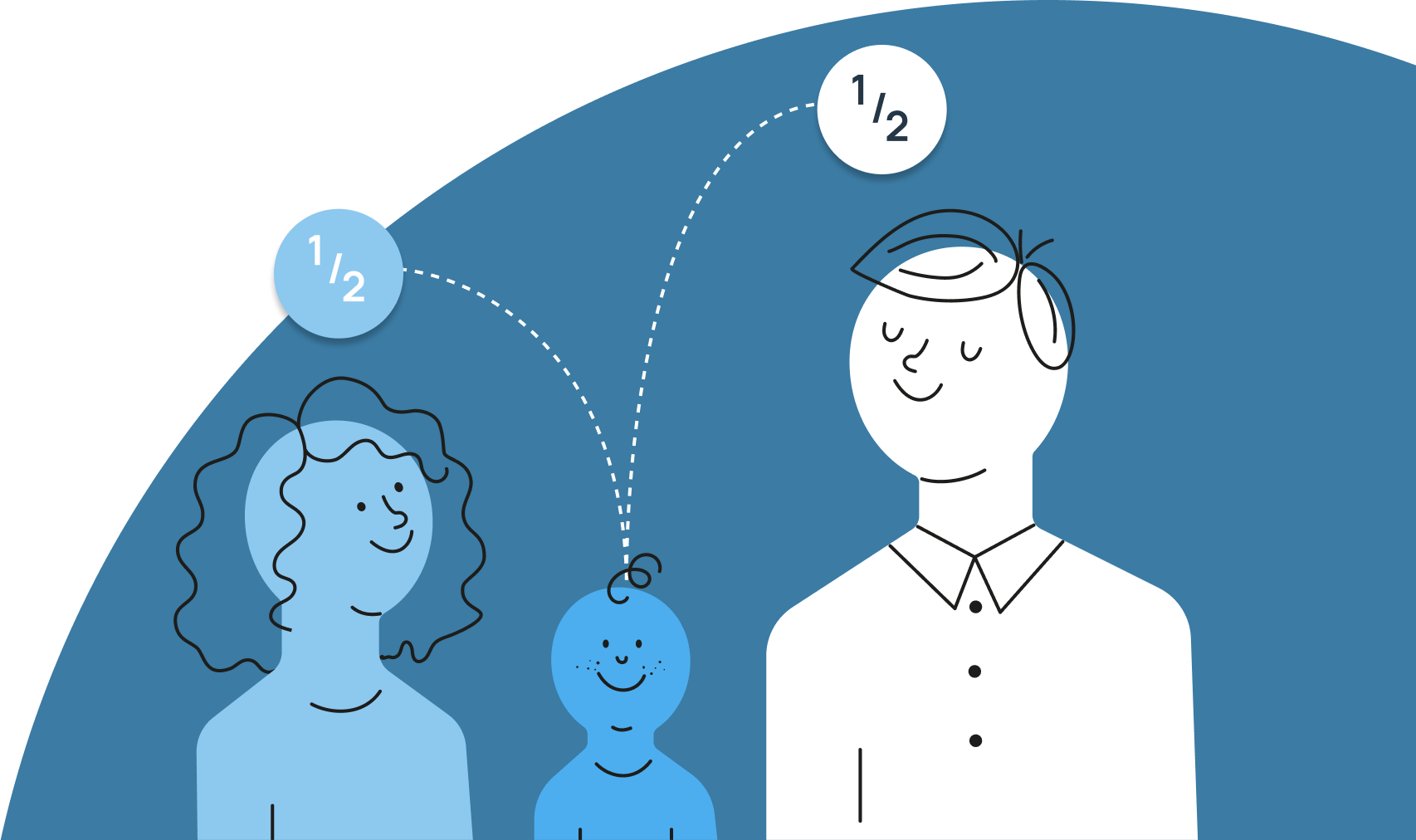Free UK shipping
Next day results
UK lab
⭐ 10% Off All Tests - February Special
How DNA Relationship Testing Works:
Paternity, Sibling and Grandparent Tests Explained
Paternity, Sibling and Grandparent Tests Explained
DNA relationship testing is the most reliable way to confirm a biological relationship. Whether you need a paternity test, are comparing siblings, or are using grandparent or avuncular (aunt/uncle) testing to establish a link when a parent is not available, AssureDNA uses the same trusted science used in UK courts to provide clear answers — fast.

What is DNA & why is it important?
DNA (Deoxyribonucleic Acid) is the hereditary code we inherit from our parents — 50% from the mother, 50% from the father. Because this pattern of inheritance is predictable, DNA is the gold standard for proving or ruling out biological relationships.

The testing process
Step by step
Sample collection:
Painless & non-invasive
We collect cheek cells using a buccal swab — the same method used in both our home DNA test kits and legal DNA tests witnessed for court use.
Laboratory analysis
Once the samples are returned to our UKAS-accredited laboratory, our team of genetic scientists extracts the DNA and analyses 25 short tandem repeat (STR) markers. These markers are highly variable among individuals and are the industry standard for relationship testing.
Genetic comparison
In paternity testing, for example, we look for a match across all 25 markers between the child and alleged father. In more distal relationships, like sibling, grandparent, or aunt/uncle testing, we are able to use additional DNA markers to achieve an exceptional degree of confidence.
Result interpretation
- A 99.99% or higher match typically confirms a biological relationship.
- A 0% match definitively excludes a relationship.
- For complex cases (e.g. half-siblings or cousins), results may include a probability score supported by scientific context.
Accuracy & confidentiality
All testing is performed in our secure, ISO 17025–accredited laboratory — the standard required for court-approved DNA testing in the UK. Your samples and results remain confidential, and are never shared without your explicit consent.
Legal vs. peace-of-mind testing
At AssureDNA, we offer:
Peace-of-mind DNA tests — discreet at-home paternity and sibling testing for private answers.
AttoLife, our parent company, offers:
Legal DNA tests - fully witnessed collection for family court, child law, and immigration cases.

What you receive
- Discreetly packaged at-home testing kit
- Step-by-step instructions
- Consent forms for each participant
- Free return envelope
- Expert support at every stage
- Paternity results within 1 working day of sample arrival
Why choose AssureDNA?
Over 99.99% accuracy
UKAS & ISO-accredited laboratory
Fast turnaround (results the next working day for paternity)
Dedicated customer support
Fully confidential and compliant with the Human Tissue Act

What our customers say
Frequently asked questions
What is a DNA relationship test?
A DNA relationship test is a scientific method used to confirm biological relationships such as paternity, maternity, or sibling connections. It compares DNA markers between individuals to assess the probability of a biological match.
How are DNA samples collected for testing?
DNA samples are collected using a painless cheek swab. Each person gently rubs the swab inside their mouth to gather cells, which are then sent to a laboratory for analysis.
What happens to the DNA samples in the lab?
In the lab, DNA is extracted from the cheek cells and analysed using 25 short tandem repeat (STR) markers. These are compared between individuals to assess genetic relationships with high accuracy.
Are DNA test results accurate?
Yes, DNA test results are highly accurate. At AssureDNA, our accredited laboratory uses 25-marker testing to confirm or exclude relationships with over 99.99% certainty in most cases.
What consent is required for testing a child?
For children under the age of 16, consent must be provided by a person with parental responsibility. This is normally the child's mother. A father can provide consent if they are named on the child's birth certificate, or they were married to the child's mother when the child was born. Evidence of this will be requested.
Will my DNA test results be confidential?
Yes, all DNA test results are handled in strict confidence. AssureDNA complies fully with UK data protection laws and never shares your information without consent.